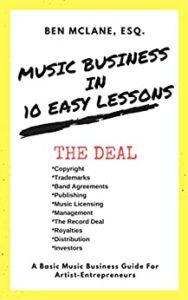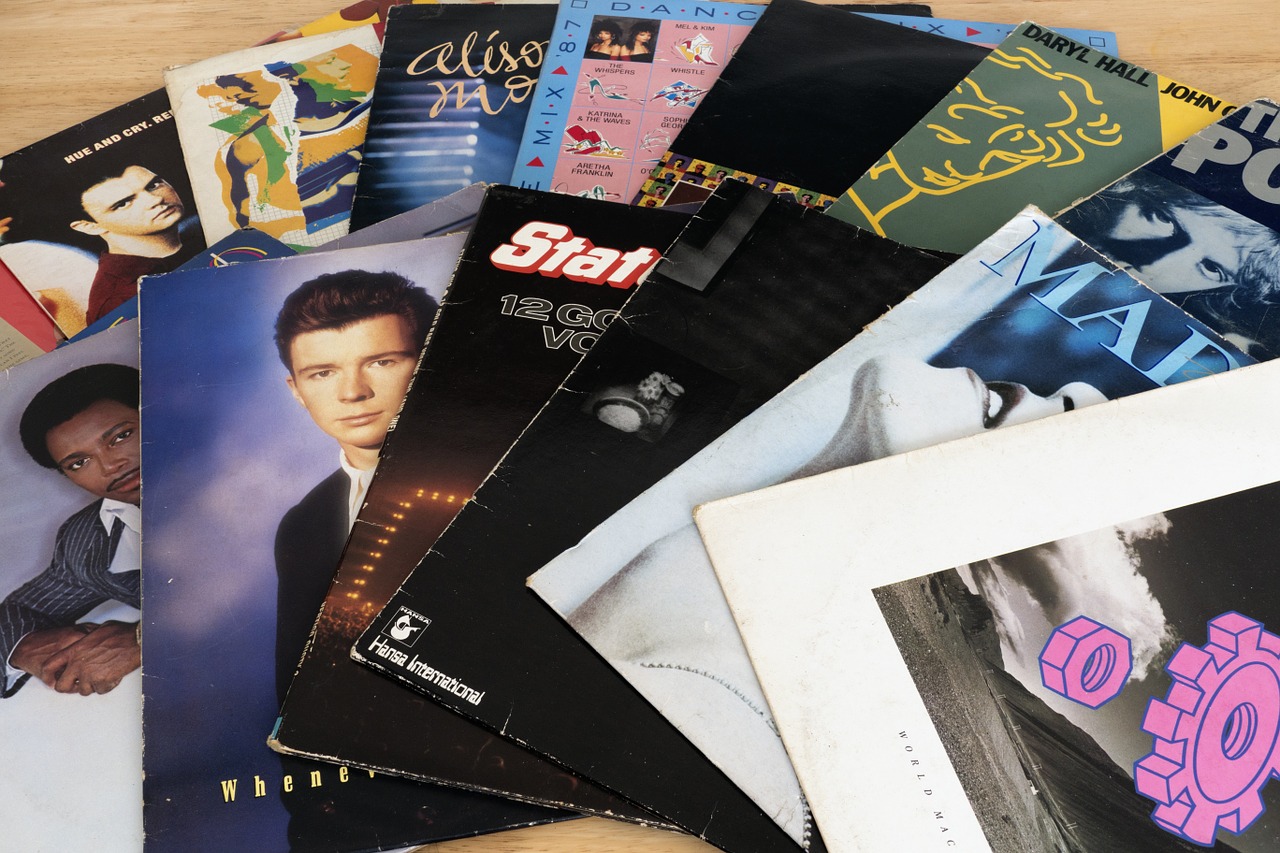The Insiders Guide To Selecting A Manager & Record Label
Many bands and musicians don’t understand the differences between a record label and an artist manager. It may seem obvious to those in the know, but it’s easy to get confused without the specifics. While both your record label and manager are your guides, they play very different roles. Without knowing what record labels and managers specialize in, it may be hard for you to pick the right ones.
So, what is the difference between a record label and a band manager? Record labels provide financing and assistance to create, market, and sell your music. An Artist Manager acts as a liaison and buffer to help artists achieve maximum results while focusing on what they do best.
Each role is different and vital, but they sometimes overlap. We’ll look at some of the differences between the two so that you are ready to face the music when the time comes.
What Is An Artist Manager?
Artist managers advocate for their clients by leveraging the band’s successes for better opportunities or revenue. In this sense, your manager is like a guide helping you navigate the music industry.
As the number of stakeholders who work with an artist grows, managers become a necessary intermediary that will filter between the band and any third party.
Their role means you won’t often be dealing first-hand with record labels, booking agents, or publicists. Communicating a clear vision and action plan to your team is essential, but your manager acts as a centralized point of contact.
Another aspect of band managers is securing a seat at the table for more significant opportunities like sponsorships, record deals, or tour packages. You won’t often have to be the one sitting around twiddling your thumbs in a room full of corporate executives if your manager does their job. Your manager will be facing a good deal of the brunt of your musical career.
You will need to make sure that you choose a manager on the same page with your career goals. A band’s needs change as they grow. You might also want to look for a manager who can hold his own in the face of opposition. You want someone who can get you the best deals.
Does a Manger Work for You or the Label?
Your manager doesn’t work for the record companies; they work for you.
While most managers worth their salt will have a working relationship with many established record labels, agencies, and industry insiders, managers are still independent entities. It is similar to how a professional attorney will have a working relationship with the courts.
Building a fruitful career is hard work. Sometimes it may seem like you are working for the manager, given that they will tell you what to do. Your manager will tell you what to do because they want you to be as successful as you can be, not because they are the ones in control over you and your image.
Generally, you are going to want to listen to your manager. You hired them for their expertise and to help get you to the top. You’re paying for their advice and assistance, so it’s a waste to tune them out.
Still, the matter is that your manager works for you, not the other way around, so you better choose carefully when deciding who will steer the ship and manage your career.
What Are an Artist Manager’s Duties?
So, what exactly does a manager do? And how do you go about finding the right one?
Well, a manager’s job description often varies depending on the band’s size, activity, and supporting team. Many job descriptions online are for large-scale clients with national or world tours and several revenue streams.
Regardless of a band’s size, a great manager will always be there with you by your side. Even if they have multiple clients or roles in the industry (and probably will), managers actively do whatever it takes to service and grow your artistic brand. Below are a few examples of how that applies:
What Does a Band/Artist Manager Do?
- Industry Contacts: Your manager use their industry expertise to help you make vital career-deciding decisions. Such decisions can include which producers you should work with on your new record or which song you should play first at your big concert.
- Negotiate on your behalf: They will also be in charge of helping you secure the best contract possible and will also help you find an honest record company that best fits your goals.
- Centralize Communication/Planning: Finally, your manager will be the ultimate intermediary between you and the media, which puts your manager firmly in control over your image as an artist.
Jack White, Founder of artist management agency Get Even Entertainment laid out some fantastic points for artists to look for in a manager.
“… We tell our clients that, no matter what, they are always the ones to make the final call on their career decisions. We are here to develop ideas, create opportunities, negotiate deals, and advise on whatever situation may arise. …”
Often managers wear many hats to make artist’s lives easier any way they can when a band is beginning to grow. As the band’s support team grows, a manager’s role becomes more defined. Here are some typical day-to-day duties an artist manager might help out with:
- Coordinating tours with booking agents
- Plan album campaigns
- Monitor the day to day happenings to keep artists focused
- Create marketing strategies
- Ensure the band gets paid for their work
- Advocating for record deals, sponsorships, and industry opportunities
- Mediating interpersonal conflicts within the band
- Negotiating contracts and fees for events and sponsorships
- Provide advice on career decisions like which label or producer to select
Below is a video that will provide more information:
Picking the Right Manager
Do your research! Selecting a manager to represent your band is one of the most important decisions an artist will face. Surely, you can see how important it is to pick a manager that is the perfect fit for you and your brand.
A great manager should be your number one superfan. Scott Waldman, Founder of Waldman Management, had the following recommendations:
“It’s always best when a manager comes to you first! You need someone passionate, organized, reliable, and honest.”
They are an extension of your brand, often greasing the wheels and ensuring everything is on track day-to-day. It’s crucial to find a manager who’s a fan first. Enthusiasm is something you can’t buy, so there’s a lot more that goes into decisions than dollar signs.
Communication is critical for all team extensions, brand partnerships, and decisions, but it goes double for your manager. Changing goals as you grow is expected, but if you don’t communicate the new direction with your team, things may begin to stall.
Your manager is going to be the person you have to interact with the most. It may not require face-to-face time, but your manager is going to have a significant impact when it comes to your future success.
Importantly, if you have a good manager, they can save you from typical growing pains and pitfalls. If your manager does not have a vision that aligns with your career goals or passion for your music, they may not perform their job effectively.
How Much Should a Manager Get Paid?
Ideally, your manager will be someone you can trust, have confidence in, and have some interest in you as an artist besides the obvious monetary one.
Aligning incentives is a crucial step to ensure maximum growth. Of course, money is the great judge, and any decisions will likely derive from potential earnings. Still, having a manager who sees more than just dollar signs when they look at you is going to be a huge plus.
Management companies often have two payment structures: monthly retainers and profit split. There are reasonable justifications for both, but only you know what’s best for your band.
Profit-sharing incentivizes revenue growth because managers don’t get paid if you’re not making money. 15-20% of gross revenue is a general payout structure.
However, smaller bands may not have the necessary income to outweigh a manager’s opportunity cost, so they charge a monthly fee. There is more risk with retainer-style agreements since a manager’s payments are not tied directly to a band’s immediate success.
Be cautious if retainers are required and make sure expectations from both parties are realistic.
Several states have regulations on licenses and payments for managers, so be sure to do your research and consult a lawyer BEFORE signing the dotted line.
What Does A Record Label Do?
If we’re breaking things down to the most basic level, a record label provides money and infrastructure to accelerate a band’s career. You have the vision, your manager has the expertise, and your record label has the resources needed to get the job done.
Besides simply giving you the money (advances), record labels can set you up with producers, engineers, studio musicians, and studio time. In effect, they’re the ones who are going to make sure that you have all the tools that you’re going to need to make an album.
Labels often represent dozens of active bands and can get bulk deals or priority treatment for public relations, advertising, or tour booking services. Gaining the backing of an established label may help open doors early that might take years to open on your own.
Record labels come in all shapes and sizes. Lots of contract variations are available depending on the following:
- What you’ve already achieved
- Your goals and growth plan
- How much control you want to maintain
- How much help the label can offer.
It’s essential to have your bandmates, manager, AND LAWYER on the same page when shopping around.
Great labels exist all over the place. Our label Awfully Good Records works extremely hard to provide bands with incredible opportunities and support. We’re among countless independent labels that actively chase growing/unestablished bands and avoid the fat cat stereotype.
A good manager can help guide you towards the best deal for your band. Making the right moves here will help build and flourish your career while avoiding common pitfalls.
Scams Regarding Record Labels
Be warned: some labels are more passionate about the final product than others. Just as you want to choose a manager who cares about you, you also want to choose a record label that cares about you too. There are many horror stories of big labels screwing over artists, and you don’t want to be just another statistic!
It takes money to make money but be sure to read the fine print of any contract to ensure labels will meet your expectations. Here’s a great video explaining the hidden costs for both large and small artists.
What Do Record Labels Spend Money On?
Each label has its strategies and connections to maximize results. They commonly invest in the following:
- Physical Merch/Album Production
- Advertising/Marketing
- Artist Advances
- Studio/Production
Another job that generally falls on the record label is the physical production side of your album and merch.
Once you have the album recorded, your record label will press all the copies and distribute them. They often handle logistics through a third party, so those albums and shirts don’t just gather dust in your garage.
What to Know About Record Labels on Advertising and Publicity
A good record label will also proactively take charge of publicity (sometimes using a separate publicity agency). Labels often have direct access and techniques to get your music in front of potential fans at a lower cost using a combination of traditional and social media advertising.
Some record labels spend HUGE sums of money marketing new and established artists, so their role here is vital even though independent artists have a lower barrier to entry. The global nonprofit Industry analytics firm IFPI put out a great article showcasing how labels are spending more than ever to empower the music ecosystem.
Additionally, here’s a section of an interview with Fred Croshal, who’s been working with labels for 35 years on what a major label’s marketing campaign for a new artist might look like:
A manager’s role is to get a seat at the table and advocate for their client. It’s tough to find a perfect fit on the spectrum between independent artists and major record labels, but managers often know what to expect and avoid.
Many major record labels take a more significant role in artist development and image sculpting. As an artist, it is your responsibility to work in tandem with your manager and lawyer to guarantee that you are not signing over any personal freedom to a record label without informed consent.
In contrast, here’s an article on how an independent artist can retain complete control and run an effective campaign for less than $1,000.
How Do Record Labels Make Money?
Record labels make money as a percentage of all potential profits. Those profits potentially come from the following areas:
- Sales
- Touring
- Merchandise
- Streaming
- Publishing
- Licensing
- Performance royalties and ticket sales
It’s standard practice for the label to take 100% of earnings until they recoup what they spend. After the initial recouping process, an artist/label split determines how they earn money later.
It is standard for the label’s share to exceed 80% of all earnings. This 80/20 cut is on the better end of things, so don’t be surprised if you see figures like 85/15 or 90/10. If you are lucky, you may be able to establish a “net 50” deal where you split profits 50/50 after the record label gets what they invest.
This cut occurs for the entirety of the cycle length of a deal. The cycle length determines how long this cut appears, which can be anywhere from one to five years. Record labels may have long-term deals for bands that they enjoy.
Of course, more prominent bands have more leverage when determining better deals. A record company is more likely to make adjustments to someone who threatens to take their business elsewhere.
Finding the Right Record Label and the Right Contract
There’s a massive distinction between major record labels and independent record labels. Just because a label is independent does not mean they’re small. For example, Victory Records remained independent for 30 years before being sold to Concord for an estimated 40 million dollars.
Artists that haven’t found a massive fanbase yet can still find a home with indie labels. Since their investment is smaller, they may be willing to offer better contract terms than major labels.
Our label, Awfully Good Records, uses “net profit splits” to align incentives. That way, if the band doesn’t make any money, neither do we. Profit splits have become pretty standard in the indie world.
However, the services and support we can offer are smaller than someone like Sony or Universal. Major labels can leverage their catalog, clout, and global network to move mountains. However, global domination often comes at a cost.
How Do The Biggest Record Labels Handle Profit Splits?
Many of the biggest record labels have developed a notorious reputation for overreaching contracts. Rolling Stone shares that artists only receive 12% of the money an album generates with significant deals. On average, influential labels as a whole will get over 70% of the profits from your music, and you, as an artist, will get a little over 10%.
Despite the negative fat cat stereotype, there are still considerable benefits to signing a major record deal.
Here’s where having a good manager starts to become incredibly handy. Managers will help negotiate contracts and ensure you are getting all the money you deserve as an artist.
Essentially, your manager is there to make sure that you don’t get into a business with a record label that’s going to screw you over. Indeed, you can see the importance of having a great manager who can advise you on which record labels offer the best deals.
A great manager and lawyer duo will be your guardian angels. They will be able to guide you into a relationship with a great and honest record label that will help build your artistic brand.
Don’t Forget a Lawyer!
Between the artist, the manager, and the record labels, there are many checks and balances. However, these roles are an extension of your team. So, it’s a good idea always to have a second (or third) opinion.
Before you decide on either a manager or a record label, consulting a lawyer specializing in the music industry is a great way to ensure you have protection. In most cases, an artist should pick out a good music lawyer first thing and keep that lawyer on call should any issues arise. Just as with your manager, you’re going to want a lawyer you trust and respect and who trusts and respects you.
Always have your lawyer go over any paperwork before you sign it. That way, you can rest assured that all parties involved are on the up-and-up!
Ben McLane, Attorney at Mclane and Wong, has been creating contracts for our label, Awfully Good Records, for years. He’s worked with legendary artists such as Weezer, Fifty Cent, The Doors, No Doubt, and Eric Clapton, so I know we’re in good hands.
A Quote from Ben McLane on Creating Contracts for Labels
“A management agreement and a record label agreement contain different terms and conditions since a manager essentially works for an artist to provide advice and counsel, and a record label is typically funding and promoting artist recordings and videos (although a manager could operate a label), it is imperative for an artist to have an experienced entertainment attorney review any such proposed agreement(s) to make sure the agreement is fair, and there is a way for the artist to exit if things do not work out so the artist is not stuck in career limbo (since both deals are usually exclusive for a number of years).”
 Ben’s book “Music Business In 10 Easy Lessons: The Deal” is an excellent introduction to concepts like copyright, licensing, standard deal terms, and publishing.
Ben’s book “Music Business In 10 Easy Lessons: The Deal” is an excellent introduction to concepts like copyright, licensing, standard deal terms, and publishing.
Like a good manager, a trustworthy music lawyer will have a lifetime’s worth of experience in the industry. With their help, your entourage will be that much more unstoppable.
A quick google search will bring up local options representing clients you probably know. Many of these lawyers offer a free first call/consultation. It’s worth doing research on past clients and getting testimonials whenever possible.
Questions You Should Ask Before Signing A Record Deal
- What actions do I need to take to stand out?
- Can you effectively release this album myself?
- Do you know the MOST EFFECTIVE way to market your music?
Choosing the Right Manager and the Right Record Label
As an artist, you must select the best manager for your specific size, activity level, and goals. Once you have a manager acting as a centralized and single point of contact, selecting a record label often becomes more manageable.
After that, it is your job to focus on making music, your manager’s job to make sure everything’s going smoothly, and the record label’s job to sell the final product.
While struggling artists may be grateful for any attention they can get, never choose a manager or record label out of desperation. These are two critical decisions that will affect the trajectory of your music career for the rest of your life.
Many would agree that it is better to have no manager than an incompetent manager. It’s also undoubtedly better to remain independent than ink a deal with a major label that isn’t willing to give your band the necessary amount of support.
Conclusion
While there is certainly some crossover between jobs, a record label, and a manager fulfill very different roles. A manager provides you that initial defense. They will primarily work with labels to give a suitable cut for your music. As an indie artist, giving away 80% of your profits to a label that won’t represent you means you won’t last long. Managers will also work with getting you paying gigs and going on tour.
Record labels help primarily with the distribution of music. They provide you the upfront investment of going to the recording studio and allowing you to work on your first albums. Most artists can’t spend several months recording without having some form of money to fund the project.
In combination with a music lawyer, both record labels and managers can provide an excellent team to ensure you get what you deserve and remain successful. With this knowledge in tow, we hope that you can find a team to support you in everything.
…
Keep it on Bythebarricade.com for tons of interviews, reviews, articles, and photos! Also, “Like” By the Barricade on Facebook to never miss a post.









